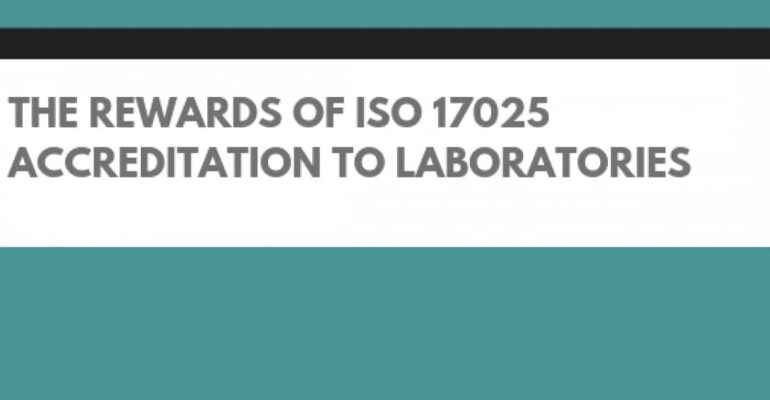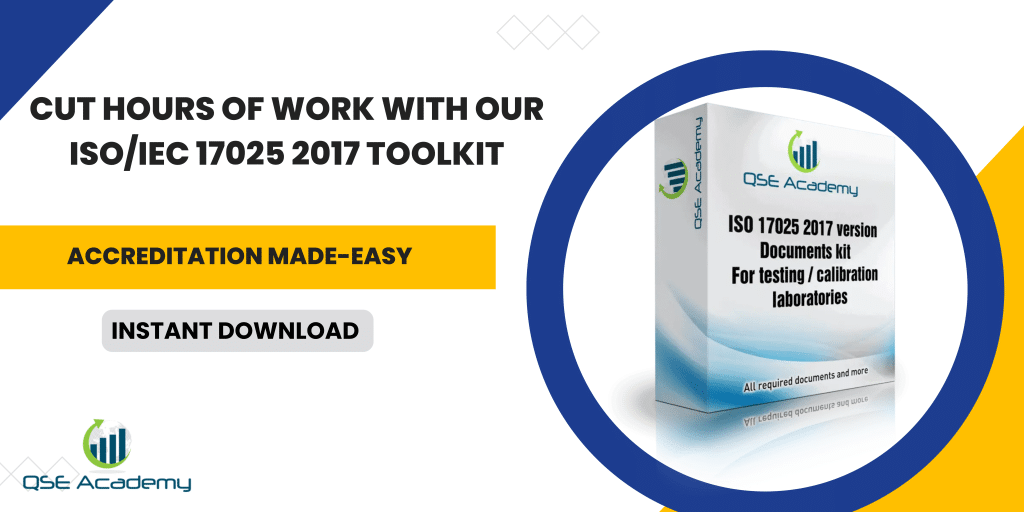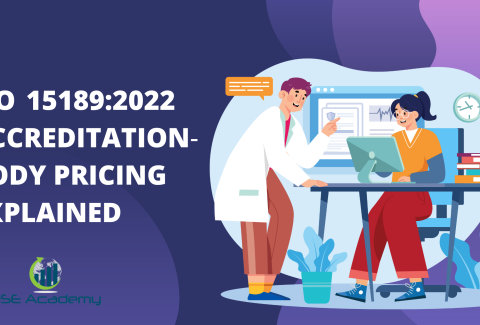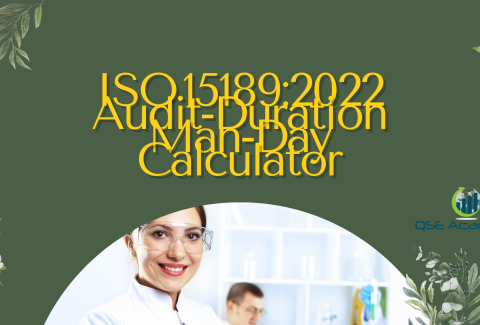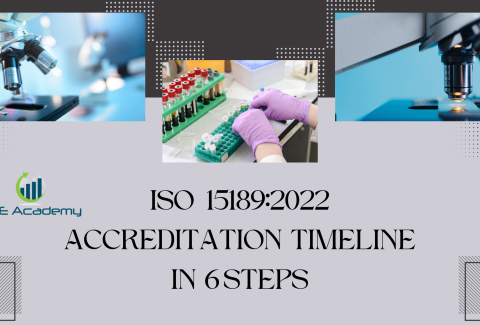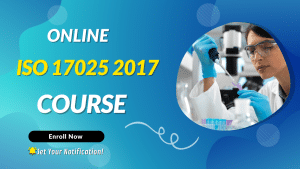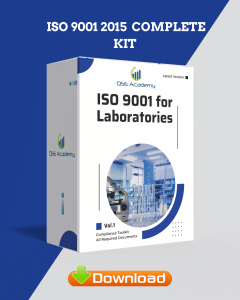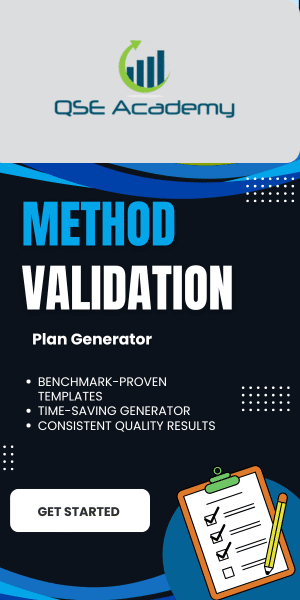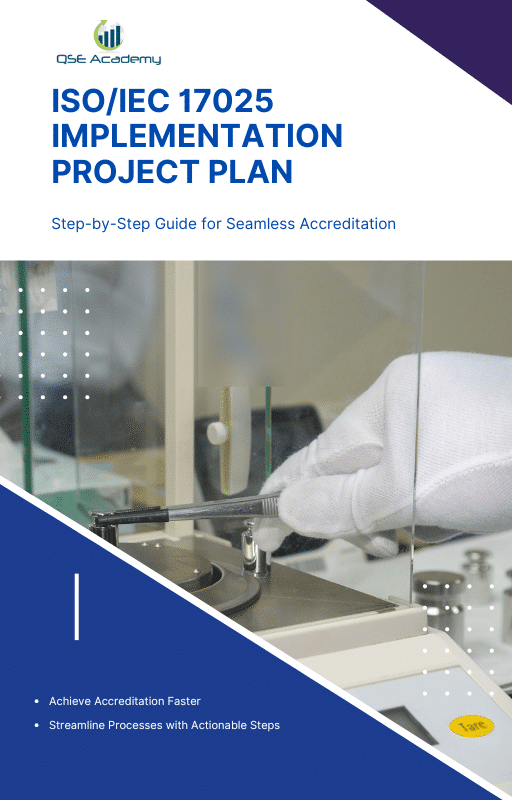The Rewards of ISO 17025 Accreditation to Laboratories
Last Updated on October 13, 2025 by Hafsa J.
The Rewards of ISO/IEC 17025 Accreditation to Laboratories
When a laboratory earns ISO/IEC 17025 accreditation, it’s not just receiving a certificate to hang on the wall—it’s reaching a globally recognized standard of excellence. The rewards of ISO/IEC 17025 accreditation go far beyond compliance. They touch every part of lab operations, from technical accuracy and client confidence to global credibility and long-term business growth.
Whether you’re running a testing lab, a calibration facility, or an internal lab within a larger organization, understanding the rewards of ISO/IEC 17025 accreditation can help you see the bigger picture. In this article, we’ll break down exactly what those rewards are and how they impact:
-
Your lab’s reputation and recognition
-
Daily operational performance
-
Team confidence and competence
-
Access to new markets and contracts
Let’s take a closer look at how this standard transforms not just what your lab does—but how it’s seen and trusted.
Recognition of Technical Competence
One of the most valuable rewards of ISO/IEC 17025 accreditation is how it demonstrates your lab’s technical competence. It’s one thing to say your lab delivers accurate results—it’s another to have a third-party accreditation body validate that everything from your methods to your measurements meets international standards.
ISO/IEC 17025 is specifically designed to assess a lab’s ability to produce technically valid results. That means the accreditation is not just about having a quality management system—it’s about proving that your people, equipment, methods, and environment all work together to deliver consistent, reliable outcomes.
Here’s where that recognition really pays off:
-
Clients and stakeholders trust that your lab is capable and qualified
-
Regulators are more likely to accept your results without extra scrutiny
-
Your lab stands out from competitors that lack accredited status
In the world of testing and calibration, trust is everything. And one of the most powerful rewards of ISO/IEC 17025 accreditation is how it instantly builds credibility with clients and industry partners. Instead of needing to convince people that your lab knows what it’s doing, the accreditation does it for you.
It’s also worth noting that the recognition isn’t limited to one country. Because ISO/IEC 17025 is an international standard, the rewards of ISO/IEC 17025 accreditation often include global acceptance of your results—something we’ll dive into more in an upcoming section.
Next, let’s explore how accreditation improves what’s happening inside your lab—specifically how it supports better systems, smoother processes, and fewer errors.
Improved Operational Consistency and Quality Control
One of the most practical and immediate rewards of ISO/IEC 17025 accreditation is how it improves the way your lab runs day to day. We’re talking about smoother processes, fewer mistakes, and way less guesswork. When your lab follows ISO/IEC 17025 requirements, things start to fall into place—because the standard doesn’t just tell you what to do, it helps you do it better.
At the core of the standard is a structured quality system. That means your lab develops and follows clear procedures for everything—how tests are performed, how records are maintained, how instruments are calibrated, and how nonconformities are handled.
The result? You get consistency. Whether the same task is performed on a Monday morning or a Friday afternoon, by a new technician or a senior staff member, the process and results stay reliable. That level of control is one of the biggest rewards of ISO/IEC 17025 accreditation—and clients notice it.
Here’s what this consistency looks like in practice:
-
Fewer errors, re-tests, or client complaints
-
Faster onboarding and training for new team members
-
Easier audits and less stress during assessments
-
A stronger sense of accountability and pride in daily work
Labs that operate without a standardized system often rely on memory or informal routines. Over time, that opens the door to inconsistency and mistakes. But one of the hidden rewards of ISO/IEC 17025 accreditation is how it helps you avoid that by building habits and controls into the way your team works.
Accreditation isn’t about adding extra paperwork—it’s about creating a system that supports quality from the inside out. And when your lab runs like a well-oiled machine, everything from productivity to client satisfaction improves.
Next, let’s talk about another powerful reward: access to markets and opportunities you might not even realize are waiting.
Expanded Market Access and Global Acceptance
Here’s where the rewards of ISO/IEC 17025 accreditation really start to open doors—literally. Once your lab is accredited, you’re no longer just another local service provider. You’re recognized as a technically competent lab that meets international standards. That kind of recognition can lead to bigger clients, larger contracts, and access to global markets.
Think of it this way: companies, regulators, and organizations around the world often rely on accredited labs because they know the results are consistent, traceable, and trustworthy. With ISO/IEC 17025 accreditation, your lab becomes part of that trusted network.
One of the key rewards of ISO/IEC 17025 accreditation is that your reports and calibration certificates can be accepted across borders through the ILAC MRA (International Laboratory Accreditation Cooperation Mutual Recognition Arrangement). That’s a mouthful—but what it really means is your lab’s work is recognized internationally without needing to re-test or re-certify in different countries.
Here’s how that translates into real-world advantages:
-
You can work with international clients and partners with fewer barriers
-
Your lab’s results carry more weight in tender submissions and regulatory filings
-
You avoid duplication of effort when exporting products or services
-
Clients choose you over competitors who aren’t accredited
The rewards of ISO/IEC 17025 accreditation go beyond reputation—they impact revenue. If you’re looking to grow your business, accreditation becomes more than a badge of honor. It’s a key that unlocks more opportunities, both at home and abroad.
Up next, we’ll dive into how ISO/IEC 17025 helps build a stronger, more capable team through clear roles, ongoing training, and a culture of accountability.
Enhanced Staff Accountability and Training
Another one of the often-overlooked rewards of ISO/IEC 17025 accreditation is how it transforms your team—not just how they work, but how they grow, communicate, and take ownership of their roles. Accreditation doesn’t just improve your lab systems—it builds up your people.
Under ISO/IEC 17025, every staff member must be trained, competent, and clearly authorized to perform specific tasks. That means your lab can’t rely on informal training or vague job descriptions. Everyone knows exactly what they’re responsible for—and that clarity helps your entire operation run smoother.
Here’s how this particular reward plays out in everyday lab life:
-
Technicians are trained and evaluated regularly to stay sharp and up to date
-
Roles and responsibilities are clearly defined, reducing overlap or confusion
-
Team members feel more confident because they know what’s expected of them
-
Supervisors can manage more effectively with documented responsibilities and competence records
The rewards of ISO/IEC 17025 accreditation show up in a stronger, more consistent workforce. Instead of dealing with repeated errors, forgotten procedures, or uncertainty about who does what, your lab operates like a team of professionals working toward a shared goal—with quality at the center.
This level of accountability also creates a culture of continuous learning. Whether it’s new testing methods, updated calibration techniques, or changes in regulatory expectations, your team is prepared to adapt because training and competence aren’t just one-time events—they’re built into the system.
So, if you’re aiming to create a lab where people feel empowered, informed, and proud of the work they do, this is one of the most rewarding outcomes of all. And speaking of growth, let’s look at how accreditation strengthens your lab’s business potential and future stability.
Business Growth and Long-Term Stability
Let’s talk about one of the most exciting (and practical) rewards of ISO/IEC 17025 accreditation—how it can help your lab grow and stay competitive over the long haul. While accreditation is often seen as a technical or compliance milestone, it’s also a smart business move that supports expansion, reputation, and sustainability.
First, many clients—especially larger organizations, government agencies, and regulated industries—require ISO/IEC 17025 accreditation as a condition for contracts. That means having accreditation can be the key that gets you into competitive bids, major supply chains, or long-term partnerships.
Some of the biggest business-focused rewards of ISO/IEC 17025 accreditation include:
-
Qualifying for tenders or supplier lists that require accredited labs
-
Attracting clients who value consistency, traceability, and technical rigor
-
Reducing the cost of repeat testing or external audits by providing recognized, valid results
-
Standing out in a crowded market by showing commitment to quality and global standards
But it’s not just about landing the next big project. ISO/IEC 17025 also brings structure that helps your lab grow sustainably. With strong systems in place, it’s easier to scale your services, train new team members, and keep quality steady—even as your workload increases.
And let’s not forget about reputation. One of the most powerful rewards of ISO/IEC 17025 accreditation is how it positions your lab as a trusted, respected operation in your field. That reputation opens doors not just today—but for years to come.
So if you’re looking at accreditation as just another requirement, think again. It’s an investment in your lab’s future—a way to build not only credibility, but a foundation for lasting success. Up next, we’ll wrap things up with a few final thoughts on how all these rewards come together to elevate your lab at every level.
Final Thoughts on the Rewards of ISO/IEC 17025 Accreditation
As we wrap things up, it’s clear that the rewards of ISO/IEC 17025 accreditation go far beyond meeting a checklist. This isn’t just about passing an audit or adding a logo to your reports—it’s about building a lab that’s trusted, respected, and ready for whatever comes next.
The real value of accreditation shows up in so many places:
-
In the trust your clients have when they see your results
-
In the way your team works with clarity, consistency, and purpose
-
In the doors that open when international recognition comes into play
-
In the long-term strength of your lab’s reputation and performance
Every part of the accreditation process—from improving documentation to strengthening staff training—adds something meaningful to your lab’s foundation. The rewards of ISO/IEC 17025 accreditation are cumulative, long-lasting, and deeply practical.
If you’re considering accreditation or already maintaining it, know that each step you take is building something bigger than just compliance. You’re investing in quality, growth, and the kind of confidence that makes your lab stand out—for all the right reasons.
I hold a Master’s degree in Quality Management, and I’ve built my career specializing in the ISO/IEC 17000 series standards, including ISO/IEC 17025, ISO 15189, ISO/IEC 17020, and ISO/IEC 17065. My background includes hands-on experience in accreditation preparation, documentation development, and internal auditing for laboratories and certification bodies. I’ve worked closely with teams in testing, calibration, inspection, and medical laboratories, helping them achieve and maintain compliance with international accreditation requirements. I’ve also received professional training in internal audits for ISO/IEC 17025 and ISO 15189, with practical involvement in managing nonconformities, improving quality systems, and aligning operations with standard requirements. At QSE Academy, I contribute technical content that turns complex accreditation standards into practical, step-by-step guidance for labs and assessors around the world. I’m passionate about supporting quality-driven organizations and making the path to accreditation clear, structured, and achievable.

